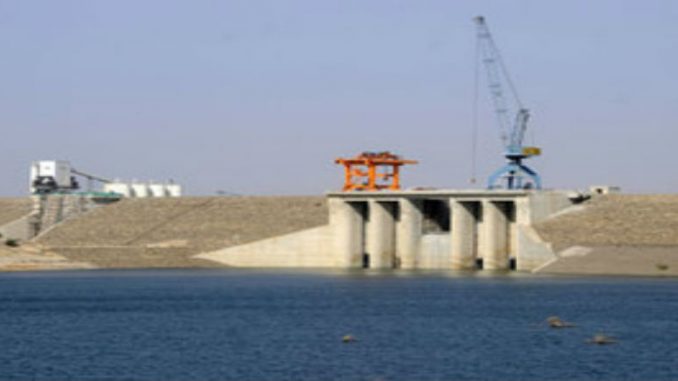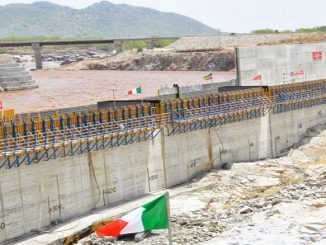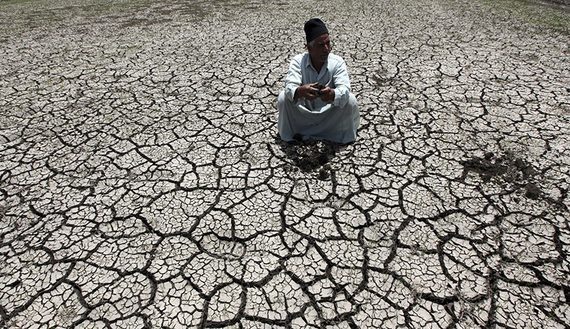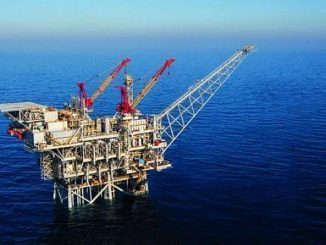
Sudan will inaugurate next Thursday its mega electricity project of Upper Atbara and Setit Dams complex, east Sudan, which is considered the largest project in the country to generate hydroelectric power with 320 megawatts, expected to increase to 2000 megawatts by the end of 2017.
The inauguration of Sudan’s two dams will pave the road to launching a Saudi cultivation project which was legally approved by the Sudanese parliament in mid-2016.
The Saudi project will allow the Kingdom to cultivate and reclaim one million acres in the area of Atbara and Setit dams.
A Saudi delegation from the Kingdom’s ministry of agriculture and participating companies are visiting Sudan currently to participate in the inauguration of Atbara and Setit Dams.
In this context, Sudan’s Minister of Water Resources and Irrigation Moataz Mousa has announced that his country will sign several contracts and agreements with Saudi Arabia in the coming period, as an essential step to launch the Saudi project of cultivating and reclaiming millions of acres granted by Sudan to Riyadh in the light of cooperation between the two countries.
On the other hand, many Saudi companies have submitted several requests to the Sudanese government to implement various projects in all types of investments.
The most recent was a joint Saudi-Chinese company which began the agricultural investment’s procedures at Sanar wilayat (state), east Sudan, in area of 90,000 acres which lies in Suki agricultural project.
Moreover, a business delegation from Soliman al-Garhy (Saudi) Group, the owner of Atbara Cement Company, negotiated with government of Kassala state the establishment of a cement company at Maman area a Telkuk locality.
In addition, Al-Qahtani Investment Saudi Company signed an agreement with Sudanese Ministry of Oil and Gas in the beginning of this month, to enter new projects to exploit and develop natural gas associated with oil that is produced by the Saudi group in western Darfur region.
Last July, the Sudanese Parliament approved a law that allows Saudis to cultivate and reconstruct millions of acres in northern and eastern Sudan.
Saudi Arabia will pour about $10 billion in the first phase for infrastructures that will take around 10 years. Then, the Kingdom will start to reclaim and irrigate agricultural land from Atbara and Setit Dams.
In addition, under the agreement singed by the Saudi Ministry of Agriculture in Khartoum last July, as part of its “Vision 2030”, Saudi Arabia will be granted the right to exploit water freely to irrigate million acre based on the crop combination recommended by the project studies and a long period of time that will last for 99 years for the optimal exploitation of these vast areas.
Accordingly, the Kingdom will link its food security with Sudan especially that the latter has about 200 million acres suitable for agriculture but it takes advantage of only 30 million of them.
There is no doubt that the Saudi-Sudanese relations will raise speculations and doubts on the Egyptian side amid the tensions between Riyadh and Cairo.
The relations between Egypt and Saudi Arabia have strained after Egypt voted on the Russian-backed draft resolution in the United Nations security council. Egypt’s vote on October 8 to support a Russian Security Council resolution on Aleppo has exposed an unprecedented rift between Egypt and its strongest Arab ally, Saudi Arabia.
The vote triggered the first public condemnation by the Saudis of the Egyptian regime, which they helped bring to power three years ago.
The Saudi criticism also coincided with cutting monthly discounted oil shipments to Egypt, a much-needed support for the country’s deteriorating economy.
Since then a cold war has erupted between both countries. Each country seeks to take steps against its counterpart in an unprecedented way.
In this context, Egypt sought to impede building a Saudi military base in Djibouti while informed media sources said that Ahmed Al-Khatib, the adviser of Saudi King Salman bin Abdul-Aziz, has paid a visit to the Ethiopian Renaissance Dam last December within the framework of his current presence in the Ethiopian capital, Addis Ababa, to find out the possibility of renewable energy generation.
The Ethiopian source, that accompanied the Saudi official to the dam, said that Al-Khatib visited the dam , and was received by the project manager Semegnew Bekele.
In the same context, Saudi Minister of Agriculture Abdulrahman bin Abdulmohsen al-Fadhli has also visited Ethiopia before Al-Khatib’s visit.
Egypt was alarmed by the visit as it is sensitive towards the Renaissance Dam issue as it fears that it will have negative repercussions on its water shrews from the Nile River.
Moreover, Sudan has recently renewed its complaint on Halai’b and Shalateen to the security council days after the visit of South Sudan’s President Silva Kiir to Egypt and the talks about a tripartite alliance between Cairo, Juba, and Uganda to siege Ethiopia and Sudan.
During Salva Kiir’s visit to Cairo, an Egyptian newspaper al-Dostour published an article titled: “In Cooperation between Cairo, Juba, and Uganda… Egypt leads a tripartite alliance to siege Ethiopia.”
The Egyptian newspaper mentioned that Egypt seeks to enhance its movements in Africa and especially with the Nile basin countries.
It also reported that Egypt, Juba, and Uganda currently form a tripartite alliance its main target to siege Ethiopia, support Egypt’s interests in the region and put pressure on Addis Ababa’s government if necessary.
Moreover, one of Egypt’s top priority to enhance its influence in Sudan to put pressure on Omar Hassan al-Bashir’s regime if the situation escalated especially that al-Bashir’s policy toward Egypt is changeable and unstable.
In addition, al-Bashir backs Ethiopia against Egypt, according to al-Dostour newspaper.
It is noteworthy that Sudan has called more than once in an official way to restore back its right over Halai’b and Shalateen.
The Hala’ib triangle, which is a 20,580-km area on the Red Sea, has been a disputable issue between Egypt and Sudan since 1958, shortly after Sudan gained its independence from the British-Egyptian rule in January 1956.
Since the mid-1990’s, the area has been under Cairo’s full military control.
Last April, Cairo refused a demand by the Sudanese government to hold direct negotiations on Hala’ib and Shalateen or to accept the referral of the dispute to the International Court of Arbitration.
Egypt has used to reject Sudan’s repeated calls for referring the dispute to international arbitration.
The international law stipulates that the agreement of the two parties is needed to arbitrate a dispute by the tribunal.
Moreover, the Egyptian authorities have imposed restrictions on the entry of Sudanese nationals into the area.



